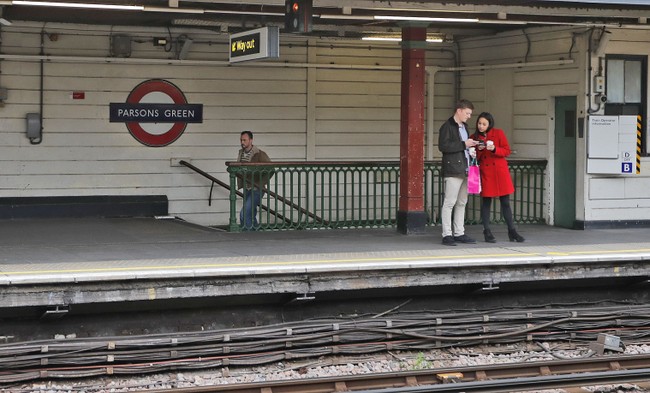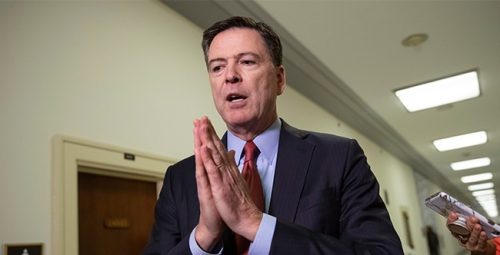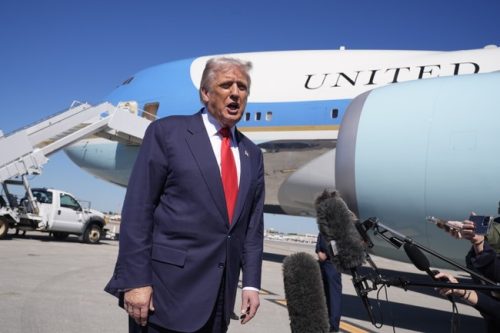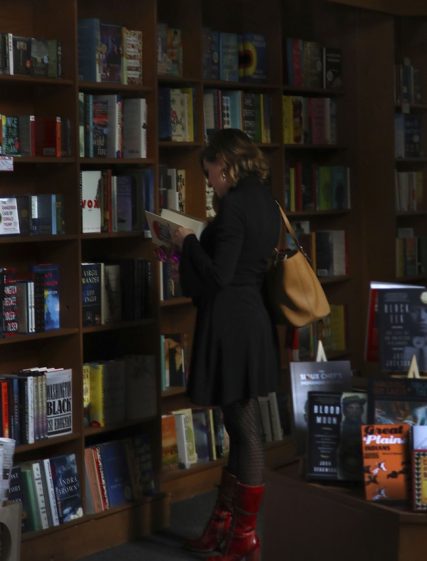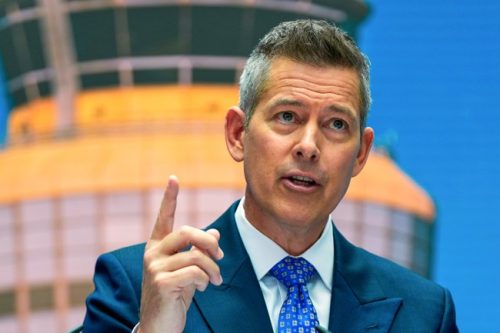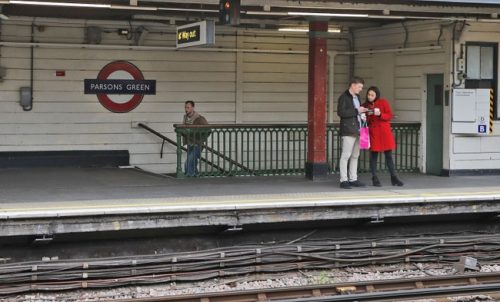After a mass stabbing on a high-speed train in Cambridgeshire injured at least ten people, British leaders are talking about airport-style security at rail stations. This article looks at the attack, the suspect’s prior behavior, the Defense Secretary’s comment about scanners, and why many conservatives see the idea as security theater that punishes law-abiding people instead of criminals.
A man was arrested over the weekend after a stabbing on a train in Cambridgeshire that left at least ten people wounded, several critically. Authorities say the suspect is Anthony Williams, and they have stated there are no links to terrorism. Reports also say Williams threatened patrons at a barbershop the day before and had injured a 14-year-old who was treated for minor injuries.
Violent crime has become a daily headache for citizens and commuters, and the instinct of some politicians is to tinker with restrictions rather than fix law enforcement and sentencing. Knife and machete bans get headlines but do little to address gang violence, repeat offenders, or the failure to lock up dangerous people. That pattern makes people feel less safe, not more protected.
Now, Defense Secretary John Healey has openly discussed the idea of airport-style security at train stations instead of focusing on stronger policing and tougher penalties. The suggestion would add scanners and checkpoints in public transit hubs, a move critics say targets ordinary travelers while doing little to deter determined attackers. Many conservatives see it as another example of making life harder for law-abiding people instead of holding criminals accountable.
Defence Secretary John Healey has failed to rule out introducing airport security-style scanners at train stations in the wake of last night’s horrific rampage in Huntingdon. The senior minister was questioned about what information is currently known, and repeated government requests for members of the public to avoid speculating.
NEW: Defence Secretary John Healey fails to rule out introducing airport security-style checks at train stations https://t.co/KdYhQr0fD4
— Calgie (@christiancalgie) November 2, 2025
Appearing on Laura Kuenssberg’s Sunday morning show, Mr Healey was asked about potential security upgrades for train passengers. Ms Kuenssberg said: “After the attacks on 7/7 there was a government trial of bringing in security scanners at stations, is that something you think the government would like to look at?” Failing to rule the idea out, Mr Healey replied: “Not immediately.”
Americans know the cost of security theater all too well because of the TSA experience at airports. Recent problems tied to the so-called Schumer Shutdown have even led to reports of staff shortages and long delays at checkpoints, showing how fragile and frustrating these systems can be when staffing or funding is disrupted. Introducing that model across dense rail networks would bring daily headaches to commuters.
It’s easier for governments to propose blanket screening than to confront the harder work of prosecuting and imprisoning violent offenders. Put simply, politicians prefer visible gestures over sustained reforms to policing, prisons, and prosecutorial priorities. In this case, commentators also point out that the suspect’s race will be a factor in how coverage, public reaction, and courtroom strategy play out, since Williams is Black, and that will likely alter the outcome of his trial and any sentencing.
Thinking through logistics shows how impractical airport-style checks would be for a country with dozens of busy commuter hubs. Imagine trying to funnel thousands of London rush-hour passengers through scanners designed for airports at dozens of suburban and city stations. The disruption would be enormous and would shift the daily burden onto commuters rather than on those who commit violent crimes.
Transit infrastructure in cities like Chicago and New York demonstrates the nightmare scenario: countless entry points, quick transfers, and a culture of accessibility that would grind to a halt under strict screening. Adding checkpoints to every station wouldn’t stop a determined attacker and would create new choke points that criminals might exploit. The trade-off is clear: convenience and mobility for the general public versus a costly security theater that leaves root causes untouched.
Beyond logistics, there’s a political cost to turning public transit into a series of guarded checkpoints. Policies that inconvenience broad swaths of law-abiding citizens while letting real offenders slip through due to soft enforcement priorities will breed resentment. Conservatives argue the right focus is on stronger law enforcement, harsher penalties for violent crime, and better detention for repeat offenders.
Editor’s Note: The Schumer Shutdown is here. Rather than put the American people first, Chuck Schumer and the radical Democrats forced a government shutdown for healthcare for illegals. They own this.
Instead of embracing security theater that mirrors the worst parts of the TSA, leaders could prioritize arresting repeat offenders, restoring prosecutorial discretion that favors public safety, and ensuring prisons serve as a true deterrent. Those steps would hit criminal behavior where it matters and spare everyday travelers from constant suspicion and delay. Changes like that take political will and tough choices, not more checkpoints and performative measures.

